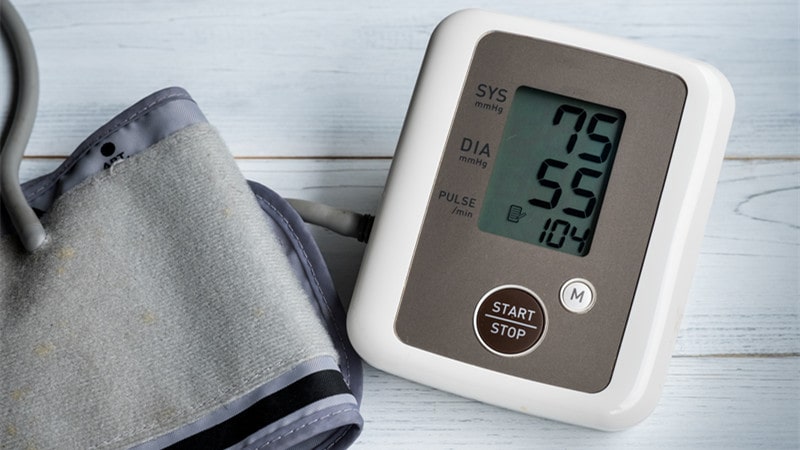Hypotension, or hypotension, is a condition characterized by a weakening of the force of blood flow against the walls of arteries. While it is generally accepted that maintaining a healthy blood pressure is advisable, abnormally low blood pressure readings can cause symptoms and may indicate an underlying health problem.
In this blog post, we’ll explore common causes of low blood pressure. From dehydration and medications to heart problems and hormonal imbalances, understanding these factors can help individuals identify the underlying cause of low blood pressure and seek appropriate medical advice.
dehydration
Did you know that one of the most common causes of low blood pressure is dehydration? When you don’t get enough fluids, your blood volume decreases, which lowers your blood pressure levels. So it’s important to make sure you stay properly hydrated throughout the day.
This is especially important during hot weather or during physical activity that causes excessive sweating. So, don’t forget to drink enough water and control your blood pressure levels!
drug
Medication side effects are an unfortunate reality for many people, especially when it comes to blood pressure issues. Certain medicines, including diuretics, alpha-blockers, certain antidepressants, and medicines used to treat high blood pressure, may cause low blood pressure as a side effect.
This can be worrying, but it’s important to start a discussion with your healthcare professional to find the best solution. Don’t let potential drug side effects deter you from taking the steps you need to control your blood pressure—with the right treatment plan and guidance from your healthcare provider, you can take control of your health.
adrenal fatigue
Low blood pressure can be caused by a number of different factors, but one of the common culprits is adrenal fatigue. When your adrenals are not functioning properly or fatigued, they may not produce enough hormones to help regulate blood pressure. As a result, you may experience symptoms such as dizziness, fainting, and fatigue.
The good news is that adrenal fatigue can be treated with a combination of dietary changes, stress-stress techniques, and sometimes medication. If you suspect that adrenal fatigue may be the cause of your low blood pressure, it’s important to work closely with your healthcare provider to develop an individualized treatment plan.
heart problems
Heart-related conditions, such as heart failure, a heart attack, or an abnormal heart rhythm, can cause low blood pressure. These conditions can affect the heart’s ability to pump blood effectively, causing blood pressure to drop. Managing underlying heart problems is critical to maintaining stable blood pressure levels.
Endocrine disorders
Certain endocrine disorders, including Addison’s disease, hypothyroidism, or hypoglycemia (low blood sugar), can cause low blood pressure. The hormonal imbalances associated with these conditions can affect blood vessel tone and overall blood pressure regulation. Proper diagnosis and treatment of these disorders are very important to control blood pressure levels.
Nutritional deficiency
Insufficient intake of essential nutrients such as vitamin B12, folic acid, or iron can lead to low blood pressure. These nutrients play a role in maintaining healthy blood volume and blood vessel function. A balanced diet that includes foods rich in these nutrients or appropriate supplements can help prevent nutrient deficiencies and maintain optimal blood pressure.
Pregnant
During pregnancy, hormonal changes and increased blood volume can cause a temporary drop in blood pressure. This is a normal physiological response to adapt to fetal growth. However, persistent or severe hypotension during pregnancy should be monitored by a healthcare professional to ensure the health of the mother and baby.
autonomic nervous system disorder
Disorders affecting the autonomic nervous system, such as Parkinson’s disease or multiple system atrophy, may disrupt blood pressure regulation and lead to hypotension. The autonomic nervous system controls involuntary bodily functions, including blood pressure regulation. Managing these conditions often requires comprehensive medical care to address the underlying cause and help stabilize blood pressure.
orthostatic hypotension
Orthostatic hypotension, also known as orthostatic hypotension, is a sudden drop in blood pressure when you stand up. It can cause dizziness, lightheadedness, or fainting. Factors that cause orthostatic hypotension can include dehydration, side effects of medications, or underlying medical conditions.
Lifestyle modifications, such as rising slowly from a sitting or lying position, staying hydrated, and avoiding triggers, can help control orthostatic hypotension.
in conclusion
Low blood pressure can have a variety of potential causes, including dehydration, medication side effects, heart problems, endocrine disorders, and more. Identifying and addressing these factors is critical to effectively managing low blood pressure and ensuring overall health. Consultation with a healthcare professional is recommended for an accurate diagnosis and an individualized treatment plan.
